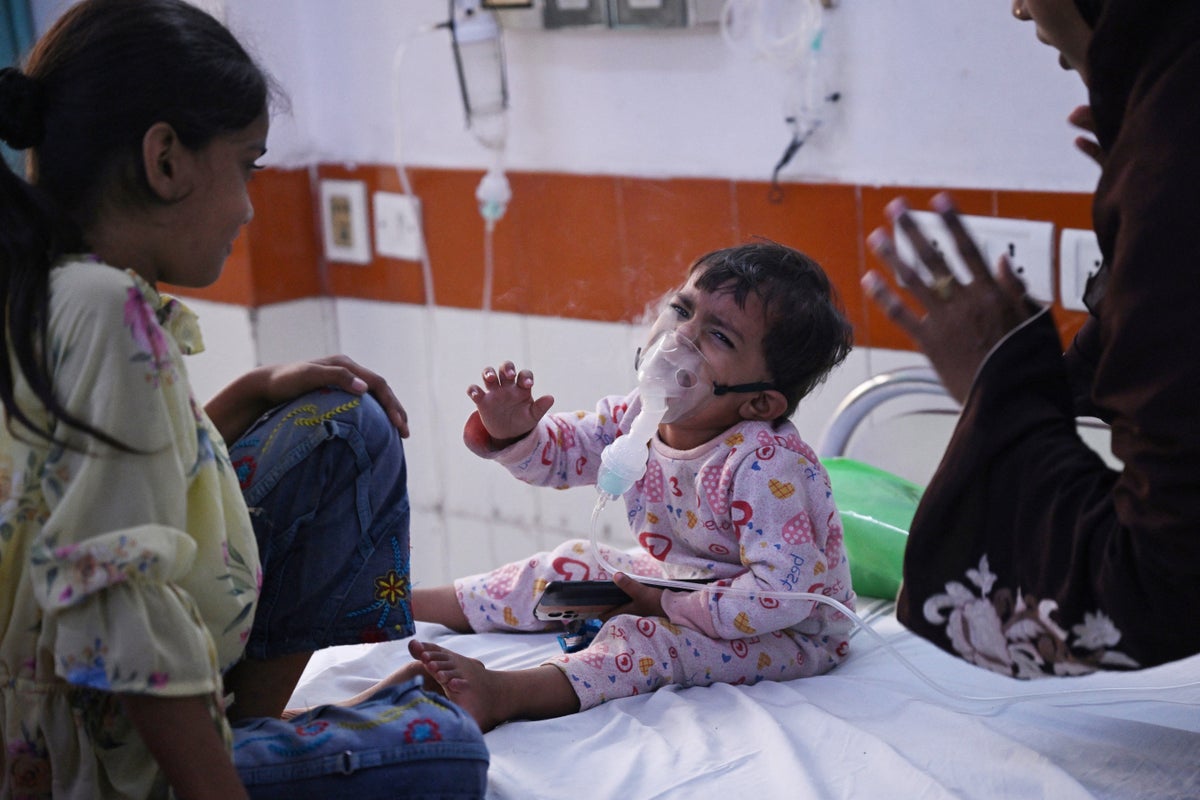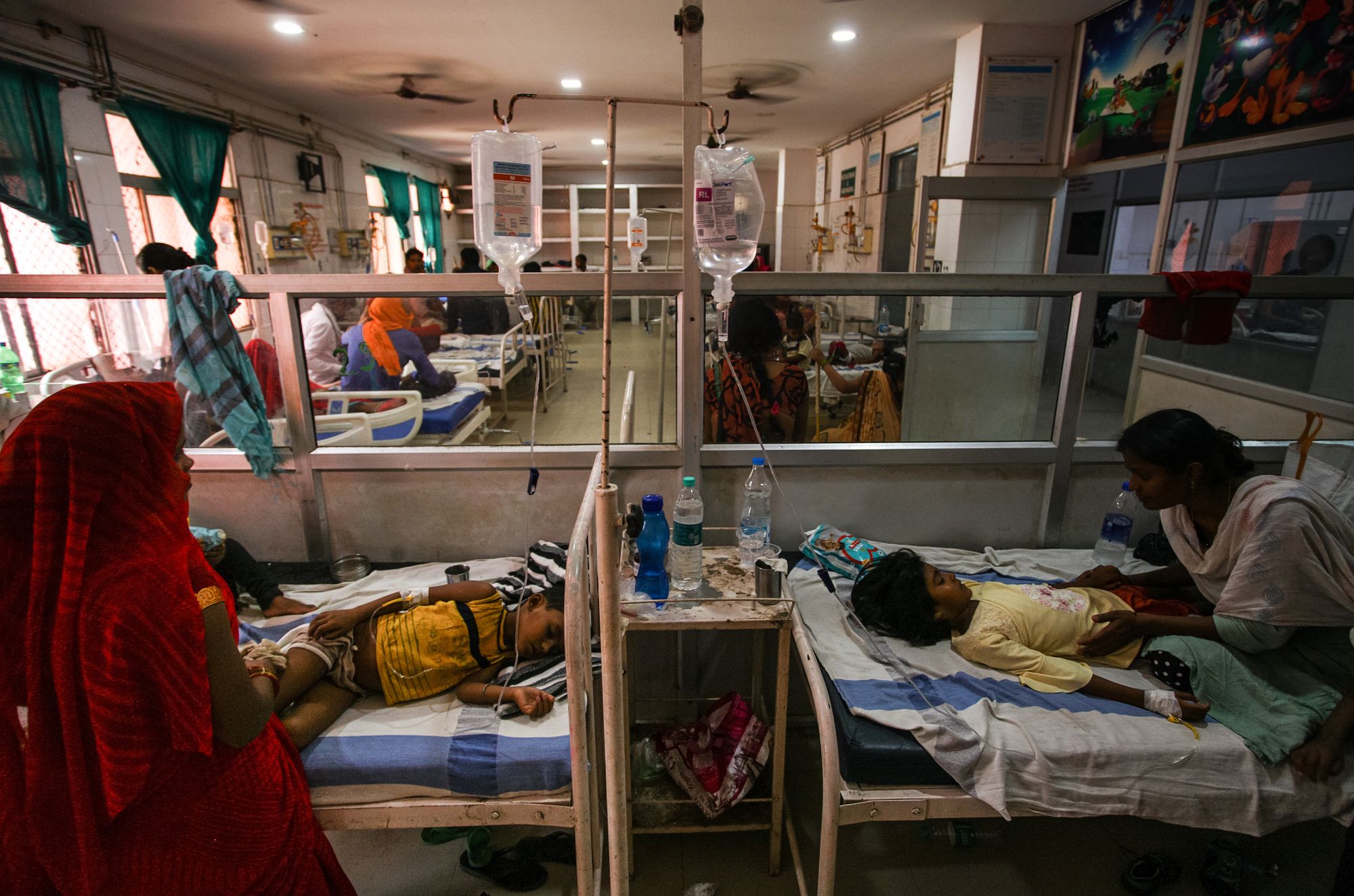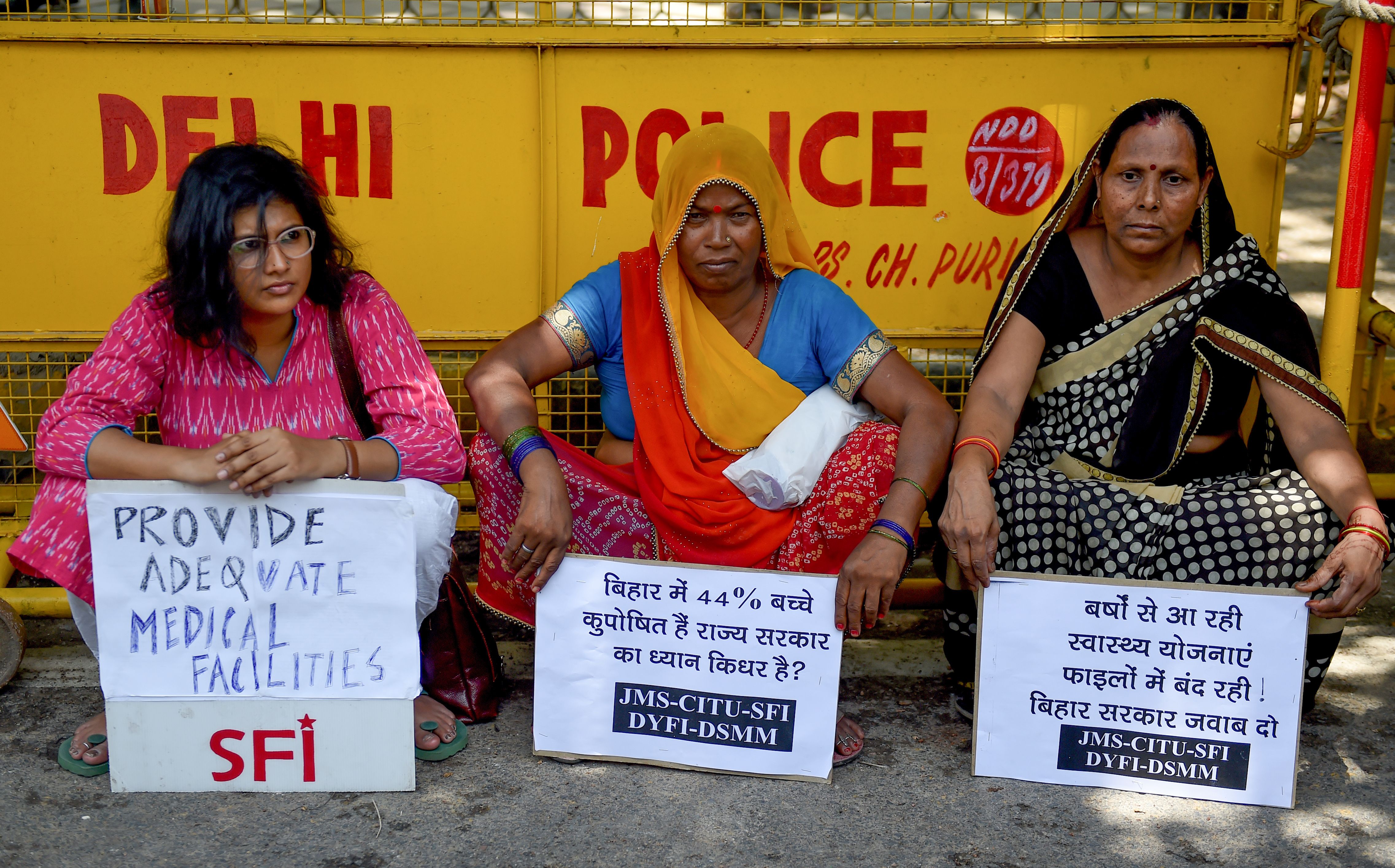
Indian authorities have banned the sale of unnamed cough syrups suspected of causing the deaths of several children over the past month.
At least 14 children under 15 have died since early September, with most of the cases reported from Nagpur in Maharashtra state and Chhindwara in Madhya Pradesh. The deaths, which occurred primarily in rural areas, have been linked to kidney failure and neurological symptoms, prompting a national investigation.
In Chhindwara’s Parasia area, at least six children aged 3 to 10 have died since early September, according to India Today. The children had mild fevers, colds and coughs but their symptoms rapidly worsened, their families said, and many fell unconscious within 24 hours of hospitalisation.
Most experienced acute renal failure, requiring dialysis and ventilator support, though these measures ultimately proved futile in saving them.
Senior local health officer Dr Naresh Gunnade said that samples had been collected from the affected children and sent for testing, with the results still pending.
Authorities have since banned the sale and use of medicines, including cough syrups, found in the homes of the deceased children. They said it was done as a precaution.
Dr Gunnade emphasised that the deaths seemed linked to potential poisoning rather than an infectious disease, though investigations remained ongoing.

Preliminary reports from paediatric neurologists in the southern city of Bangalore suggested at least some cases could be related to the Chandipura virus, a rare viral infection causing acute encephalitis syndrome.
“While Japanese Encephalitis is more common and preventable through vaccination, there is currently no vaccine for Chandipura virus. Both viruses however can cause equally severe illness,” Dr Vikas Krishnananda, consultant paediatric neurologist at Kinder Hospitals, was quoted as saying by India Today.
AES is an umbrella term describing conditions in which the brain suddenly becomes inflamed. In India, the widely reported cause is Japanese Encephalitis, a viral disease transmitted to humans by Culex mosquitoes that pick up the virus from birds or pigs.
Symptoms include fever, seizures, disorientation, and in more severe cases, paralysis or coma. Mortality can be as high as 20-30 per cent, and survivors often face neurological complications in the long term.
Some cases are now being classified as acute encephalopathy rather than encephalitis.
While encephalitis usually implies a viral infection, encephalopathy may result from toxins, poisoning or environmental triggers.
In the current outbreak, cerebrospinal fluid and blood tests have ruled out common bacterial and viral infections.
The central government has dispatched experts from the National Institute of Virology and the National Centre for Disease Control to Chhindwara and Nagpur to investigate the deaths.

The western state of Rajasthan has launched a separate investigation after two children died following alleged consumption of cough syrup from a government hospital.
Eight more children reportedly fell ill in Banswara but recovered, reported the Indian Express.
Authorities suspended the sale of the medicine until laboratory results confirmed safety.
The unnamed syrup was distributed by government health centres. An inquiry had been ordered and 22 batches of the syrup banned, PTI quoted officials as saying on Wednesday.
A senior doctor tried to prove the syrup was safe but fainted after consuming it.
Dr Tarachand Yogi, head of the Bayana Community Health Centre in Rajasthan, reportedly fell unconscious for about eight hours after drinking the medicine to demonstrate its safety to concerned parents.
The first victim in Rajasthan, a five-year-old boy from Sikar, was given the syrup at a local health centre in Chirana last Sunday.
His condition deteriorated overnight and he died the next morning while being taken to hospital, according to Rohitashwa Kumar, assistant sub inspector of Dadiya police station.
“The child’s parents refused to file a complaint, or conduct a postmortem, but his maternal grandfather lodged a complaint,” Mr Kumar was quoted as saying by the Hindustan Times.
A two-year-old boy died in Bharatpur after taking the same syrup at a local health centre.
“Three of my grandchildren took that syrup. Two woke up after vomiting but he never regained consciousness,” his grandmother, Nehni Jatav, said. “Later, we learned that it was because of the medicine.”
Drug controller Ajay Phatak said they had collected samples from Sikar, Jhunjhunu, and Bharatpur areas. Test results were expected within three days.
His department had received complaints of children taking ill after consuming the medicine, Mr Phatak, adding that the syrup should not be administered to children under five.







